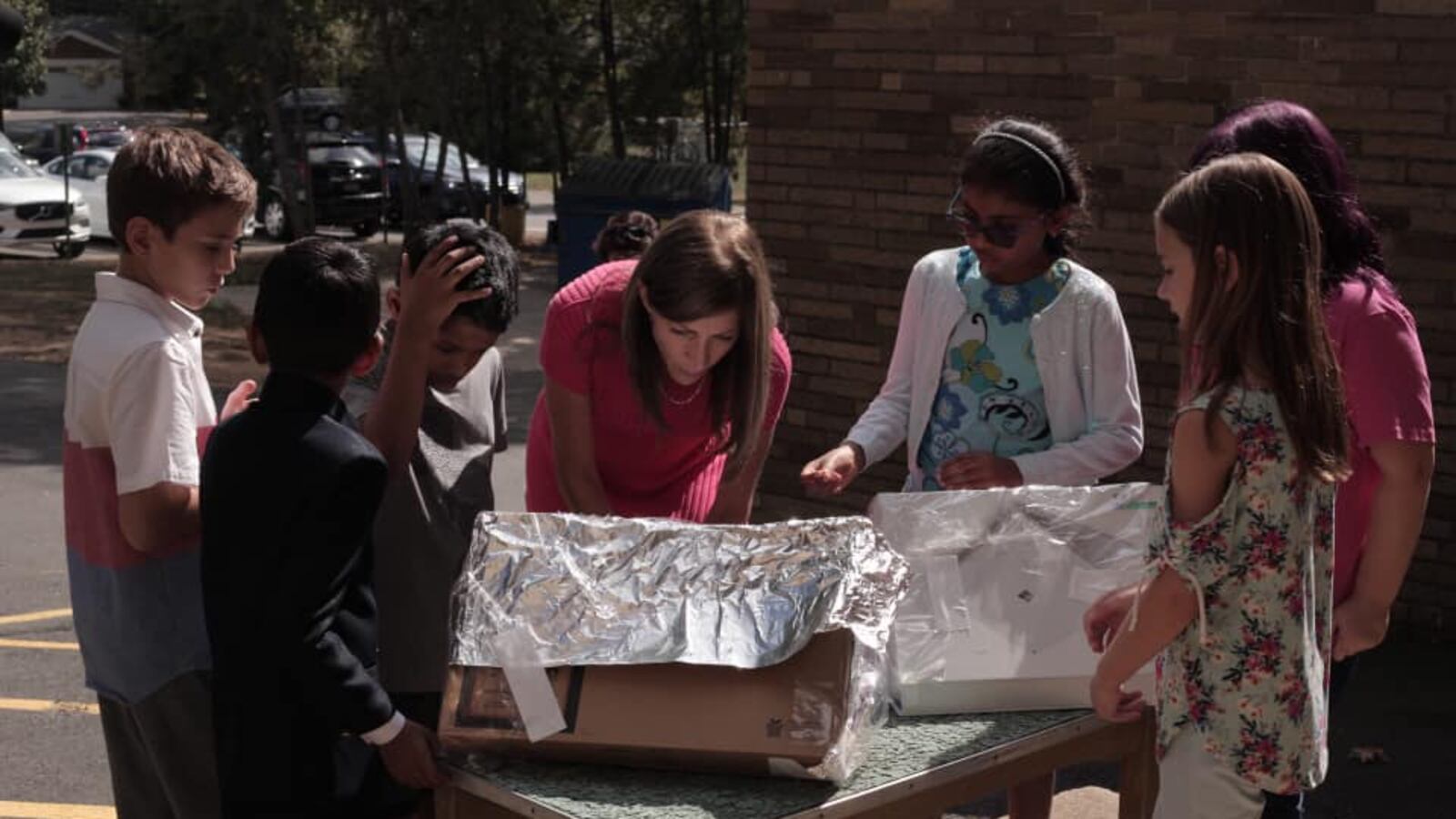As young people around the world are taking to the streets to show their concern about climate change, New Jersey’s first lady wants them to engage on the issue in school, too.
Tammy Murphy, the wife of N.J. Gov. Phil Murphy, is pushing for climate change to be written into the state’s official academic standards, which outline what students should learn in each grade. Murphy, who is a longtime environmental advocate, said in an interview she was inspired by seeing students’ reaction to the activism spurred by 16-year-old climate activist Greta Thunberg.
“I think students are yearning for this,” Murphy said. “The level of enthusiasm these kids have — they’re super excited about what they’re doing and learning. We are educating the future generation of leaders.”
Currently, the state’s science standards call for instruction about climate change in some grades. But Murphy’s vision — which she said aligns with her husband’s clean energy push — is for the topic to be embedded in the standards in all grades and subjects, not just science classes. That means that schools might require students to write essays about the environment in English class or learn about how water has impacted society in social studies class.
“We need students who are prepared to collect data, analyze results and make well-reasoned arguments based on the evidence,” she wrote in a recent op/ed explaining her push. “We need policy-makers able to make informed decisions and take needed legislative action, urban planners ready to help cities adapt to increased rainfall and storm surge, insurance brokers prepared to help homeowners navigate new risks, and artists with talent to communicate the impending threat that climate change poses.”
New Jersey’s learning standards are reevaluated every five years. Over the past several months, Murphy said she had met with the over 130 educators from across the state who have been tasked with suggesting changes to most subjects this year. They’re expected to make recommendations to the state board of education this winter for approval sometime next spring.
“The sooner we get others on board, then the sooner in New Jersey we’ll be ahead of the curve,” she said. “I’m hopeful everybody gets on board and we can make a change for the future.”
If climate change is added to New Jersey’s standards, it would join two other specialized topics that were added in response to shifting political winds — and have struggled to make their way to local classrooms. In 2002, lawmakers voted to require lessons about African-American history, and last year, the state became the second to require teaching about LGBTQ+ history. In both cases, districts and schools have not always adjusted their expectations to comply quickly.
One challenge when it comes to climate change is that high-quality curriculum materials could be hard to come by. In Indiana, where climate change is a required topic in eighth-grade science, for example, teachers have complained about struggling to find credible, up-to-date information.
Newark Teachers Union President John Abeigon questioned how Murphy, who is not an educator, could steer her vision into a reality that local teachers could act on.
“Teachers are right — how’s that rollout going to happen?” he said. “We respect the concept and the environment, but come into my environment before you want to introduce anything to it.”
Murphy said she recognizes that giving teachers resources to embed climate change into their teaching would be essential if the topic is added to the state’s standards.
“While I’d say there’s universal enthusiasm for teaching it and discussing the environment, the only area I’d say anyone has had hesitation is teachers themselves — they’ve not had the ability to learn about this,” she said. “They’re in an area they have to teach about things they haven’t been educated on.”
Environmental justice advocate and former Newark school board member Kim Gaddy said she hoped Murphy would tap the expertise of locals in designing climate change curriculum.
“I hope the first lady and members of the school district would partner with environmental organizations to make sure our kids hear it from the people who are on the ground doing the work,” Gaddy said. “It’s one thing to get it from a book. It’s another to connect it with your community and where you live.”
But even with the question marks about a future rollout, Gaddy said she was glad Murphy is pushing for climate change education. For students in Newark, who breathe some of the dirtiest air in the state and have already seen nearby beaches reshaped by historic storms, environmental education is personal, she said.
“It’s a great first step in trying to engage and inform students,” Gaddy said. “Climate change is the next crisis that, unfortunately, our youth is going to be faced with.”

